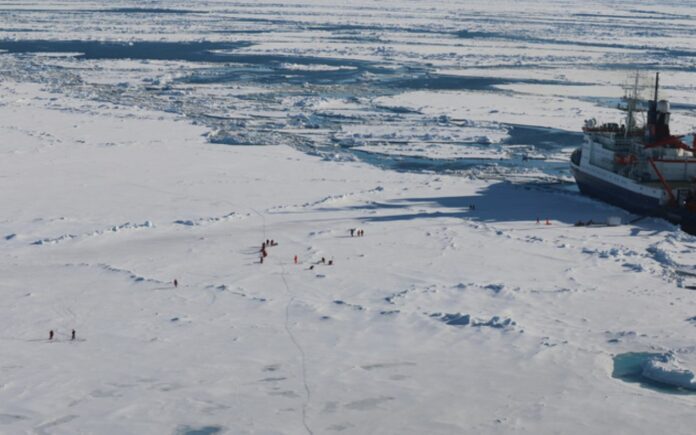Are Climate Models Being Used by the UN’s IPCC and Others Underestimating Arctic Climate Change?
According to researchers at the University of Gothenburg, climate models used by the UN’s IPCC and other organizations to forecast future climate change may not be providing an accurate picture of the Arctic‘s fate. The scientists contend that the rate of warming in the region will occur at a much faster pace than originally predicted.
The lack of comprehensive observation in the Arctic, which is home to a harsh climate and sea ice cover, means that climate models used to estimate its future are not as finely tuned as those used in other parts of the world. As a result, the projections for the Arctic may be less precise than those for other regions.
Researchers from the University of Gothenburg have conducted two recent scientific studies comparing the results of climate models with real-life observations. The studies indicate that the warming of the Arctic Ocean is likely to progress at a significantly faster pace than originally anticipated by the models.
Climate models underestimate the impacts
“These climate models underestimate the consequences of climate change,” remarks lead author Céline Heuzé.
“In reality, the relatively warm waters in the Arctic regions are even warmer, and closer to the sea ice.”
And they “believe that the Arctic sea ice will melt away faster than projected.”
One of the factors that could be contributing to the inaccuracy of climate models used to forecast the future of the Arctic is the inadequate representation of the volume and temperature of warm water currents flowing into the Arctic Ocean via Fram Strait, which lies between Greenland and Svalbard. According to researchers at the University of Gothenburg, the models do not account for these variables adequately.
In addition, the stratification of the Arctic Ocean, which is the way in which water layers are stacked on top of one another, is also misrepresented in the models. The researchers found that approximately half of the models projected an increase in stratification, while the other half predicted a decrease. This divergence in projections makes it challenging to estimate the effects of global warming on the Arctic accurately.
We must prioritize collecting actual information on the Arctic
“This is a serious situation,” comments the author.
“If governments and organisations all over the world are going to rely on these climate models, they must be improved.”
Because of this, “research and data acquisition in the Arctic ocean must be prioritised.
At present, according to the author, “we cannot provide a useful prediction of how quickly the Arctic sea ice is melting.”
The Arctic plays a significant role in predicting the intensity of global warming in the future. The presence of sea ice in the region produces an albedo effect, meaning that the bright white surface reflects sunlight and reduces the amount of solar radiation absorbed by the planet. However, if the sea ice were to melt, the Earth would absorb more solar radiation, potentially leading to further warming of the planet.
“We need a climate model,” adds the lead author, “that is tailored to the Arctic.
“In general, you can’t use the same model for the entire planet, as conditions vary considerably. A better idea would be to create a specific model for the Arctic that correctly factors in the processes occurring in the Arctic Ocean and surrounding land areas.”
Source: 10.1175/JCLI-D-22-0194.1
Image Credit: Céline Heuzé
